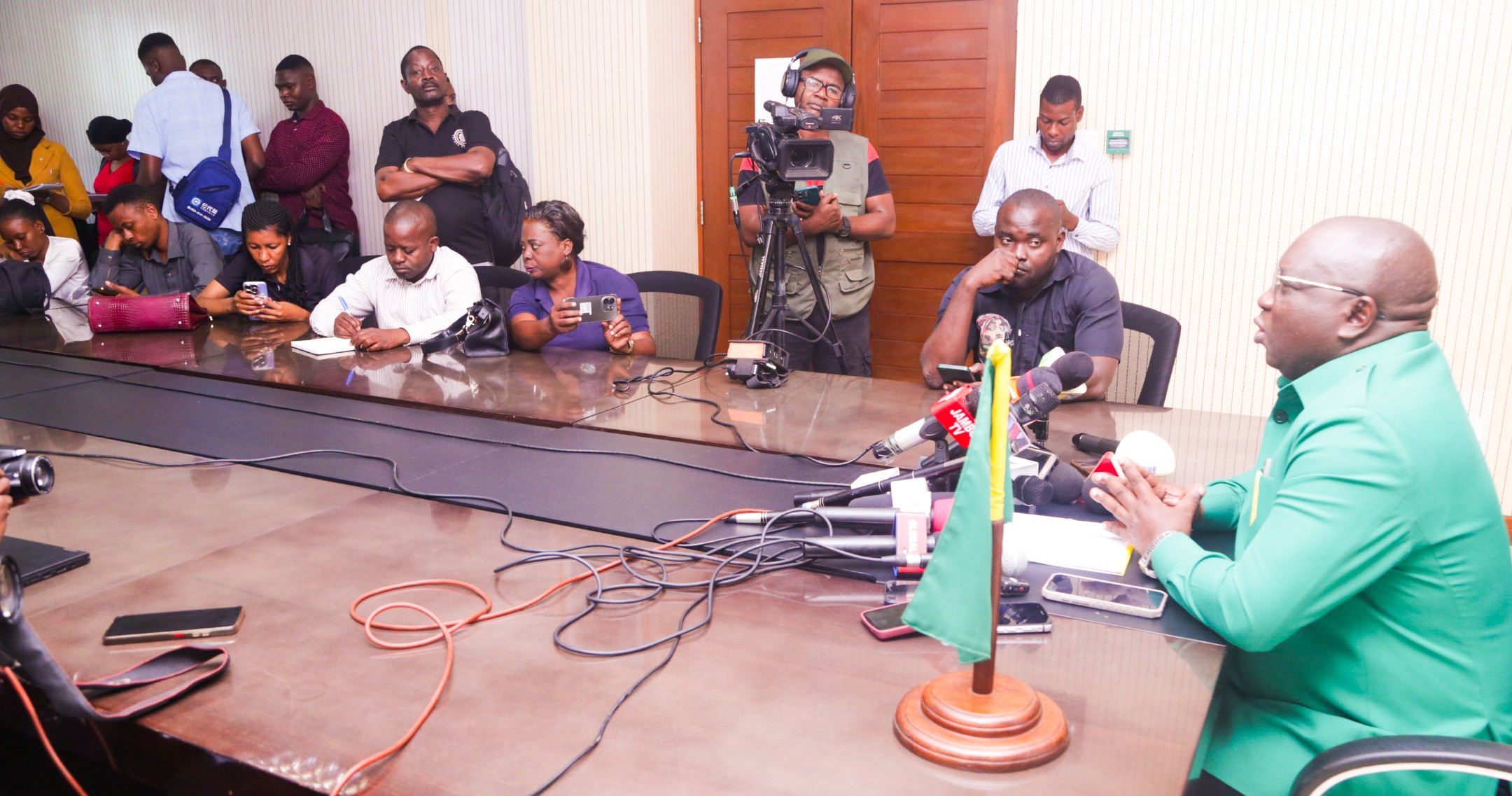Why you may soon be paying much less for internet bundles

What you need to know:
- Information and Communication minister Nape Nnauye says several initiatives are underway, and a number are in their final stages
Dar es Salaam. The government yesterday outlined plans to cut data tariffs and other telecommunication charges later this year when the process of reviewing tax-related legislations for the industry will be completed.
Information, Communication and Information Technology minister Nape Nnauye disclosed this during an exclusive interview at the Mwananchi Communications Limited (MCL) head office in Dar es Salaam.
“In order to reduce the cost of bundles, which, according to a majority Tanzanians, is high despite Tanzania being place sixth in tariff affordability in Africa, the government is reviewing the relevant legislation,” he said.
“Reduction of internet costs will boost innovation in information and communication technology, which is one of the critical drivers of productivity and economic growth.”
According to Mr Nnauye, several initiatives to this effect were underway, and a number were in their final stages.
“They don’t just decide when it comes to bundle charges...the ministry issues indicative tariffs.”
The tariffs, according to the minister, are a result of scientific analysis, which takes into consideration the cost of investment, number subscribers, operating costs, tax and levies, among other factors.
Mr Nnauye said the government conducts a major assessment of the state of internet access and bundles every five years to see what needs to be done to bring relief to users.
“Her Excellency President Samia Suluhu Hassan has directed that we ensure that we cut tariffs to make it possible for Tanzanians to enjoy their fundamental right related to freedom of information. Buying data bundles shouldn’t be a luxury. That is why we are implementing this strategy that will give us answers as to what needs to be done,” he said.
In the same spirit, the government seeks to remove excise duty, which telecommunication operators say gobbles up at least 40 percent of their revenues.
“We are proposing to abolish the 17 percent excise duty on ICT-related services. This duty is usually charged to discourage the use of products such as alcohol and cigarettes, but since ICT is a human right, we shall remove this duty,” Mr Nnauye reaffirmed.
Also, the minister noted that the government intends to reduce the so-called “right of way” levies charged by the Tanzania National Roads Agency (Tanroads) and Rural and Urban Roads Agency (Tarura) when an institution want to have the right to use a road reserve for its undertaking.
“For instance, when TTCL wants to lay down its fibre optic cables, it has to pay $1000 per kilometre to the said institution depending on jurisdiction, yet Tanesco pays only $5, and water authorities pay $20 per kilometre, but in Rwanda it is zero tariff, although Kenya and Uganda charge $30 and $50, respectively,” he explained.
According to Mr Nnauye, the ministry is proposing zero tariff, adding, “Since this is stipulated in the law, and as per the President’s directives, this ministry together with the Ministry of Works, is reviewing the matter because investment costs increases with such a law in place.”
According to him, if such levies are removed, then investment as well as operating costs would be reduced, and this would be reflected in services offered.
With current strategy underway, the State-owned telecommunications firm TCCL and Tanesco will be able to share poles in extending their services to customers.
“There is no need for TTCL to install its own poles in an area where Tanesco’s infrastructure is already laid...it is not acceptable as it also adds investing costs. We are now going to share our infrastructure,” the said.
The government believes that by reducing production costs among telecom companies, the cost of phone packages and bundles will also drop.
The development comes when mobile phone users have been complaining about the increase in the cost of airtime packages and data bundles at a time when the cost of living has also been going up, thus awakening the relevant authorities to clear the air.
In August last year, The Citizen spoke to some members of the public, with Mr Yakoub Haji, saying in the past that he was using the Sh2,000 package that had 100 minutes, 30 text messages and one GB. However, currently with the reduced package he gets 40 minutes, 10 messages and one GB.
Mr Ernest Haule said he used to subscribe to the Sh3000 weekly package and used to get 30 minutes and 1.6 GB, but now at that rate one gets 1 GB and 30 minutes. While they used to get 300 MBs for Sh500, now it is 287 MBs and 30 minutes.
Moreover, in an interview with a local radio Mr Nnauye, said that many people have not been paying attention to the changes in packages/bundles, especially in terms of cost and time. The minister noted further that due to the large investment that has already been made, including the presence of the national backbone and the telecom towers, the operating cost was the only obstacle at the moment, and they must look at it.
“What we are doing is reviewing the areas that evaluate prices to find out what we can address so as to reduce production costs, which will lead to a reduction in the cost of transporting data,” he explained.





